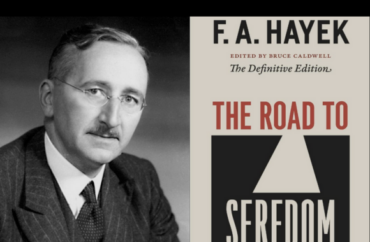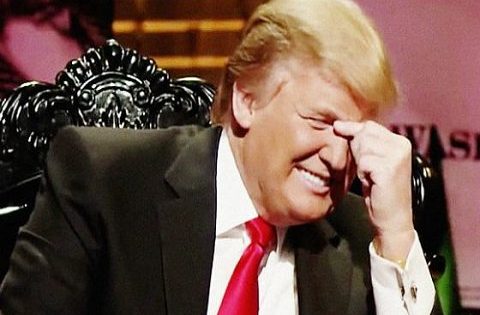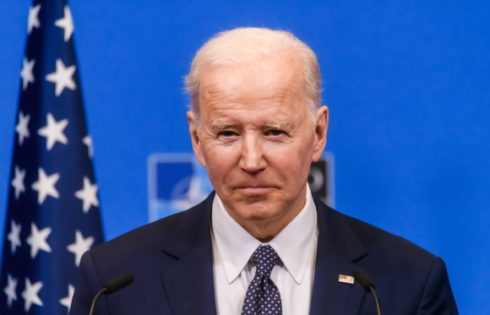
OPINION: As a reminder, many academics oppose free and open debate
The American Economic Association found space for at least 45 panels on DEI at its upcoming conference – but had no room for a discussion about economist Friedrich Hayek.
Chapman University Professor Mark Skousen revealed how he wanted to organize a discussion about Hayek, a Nobel Prize-winning libertarian economist famous for his book “The Road to Serfdom,” and other writings.
“Earlier this year, economist Tawni Hunt Ferrarini and I proposed a session for the January meeting honoring the free-market Austrian Friedrich Hayek on the 50th anniversary of his winning the Nobel Prize,” Skousen wrote on Monday in the Wall Street Journal.
But Harvard University Professor Lawrence Katz said he was “unable to include this session in the program,” according to Skousen. Katz is the incoming president of the economist group (which is run by Democrats).
“It should also be noted that the American Economic Association’s organizing committee greenlit some 45 sessions devoted to topics of diversity, equity, inclusion, inequality, gender, belonging, segregation, sexual harassment, discrimination, race and LBGT,” Skousen wrote.
“In the name of political diversity, wouldn’t it be appropriate to give some time to the contributions of Friedrich Hayek,” the Chapman professor asked.
To answer the question, yes, but most academic groups do not care about “political diversity.”
Remember – the official position of the Ohio chapter of the American Association of University Professors is that there is enough intellectual diversity at public colleges in the state (despite evidence to the contrary).
It is just the latest evidence that scholarly associations are hostile to right-leaning views and reinforces William F. Buckley’s argument that academic freedom is a myth.
It is not exactly a secret that professors want to limit debate at academic associations.
Consider George Washington University Professor David Karpf, who advocated to get John Eastman and Claremont Institute booted from American Political Science Association meetings. Eastman provided legal advice to President Donald Trump that suggested Vice President Mike Pence could reject certain electors for the 2020 presidential election.
Karpf felt “pride” in 2022 and 2023 when he saw Claremont was left off APSA meetings. “Every year, I click on the related groups, see that Claremont isn’t there, and feel a dash of pride,” he told Inside Higher Ed.
Much to Karpf’s chagrin, Claremont returned this year.
But one panel, which the think tank had to pay for, does not undermine the general opposition of many academic groups to open debate.
A recent report from the American Enterprise Institute found that taxpayers underwrite leftist scholarly associations by paying for the dues and conference fees of faculty members.
“81 percent have issued at least one official position on race or affirmative action, the Russian invasion of Ukraine, the Israel-Hamas conflict, immigration, or climate change,” the report found.
“Of the 80 scholarly groups that put out left-leaning statements in recent years, AEI estimated that public universities spent nearly $200 million annually on faculty dues and conference registrations, an estimate that does not include food and lodging,” The Fix reported.
Those are taxpayer dollars – and political leaders should revoke funding for left-wing groups.
If they won’t respect the diverse political views of a state, taxpayers should not help fund them.
MORE: Stanford tech marketing course mandates DEI statement to enroll
IMAGES: Dick Clark Mises/Wikimedia Commons (Photo of Hayek); University of Chicago Press/Amazon
Like The College Fix on Facebook / Follow us on Twitter







Please join the conversation about our stories on Facebook, Twitter, Instagram, Reddit, MeWe, Rumble, Gab, Minds and Gettr.